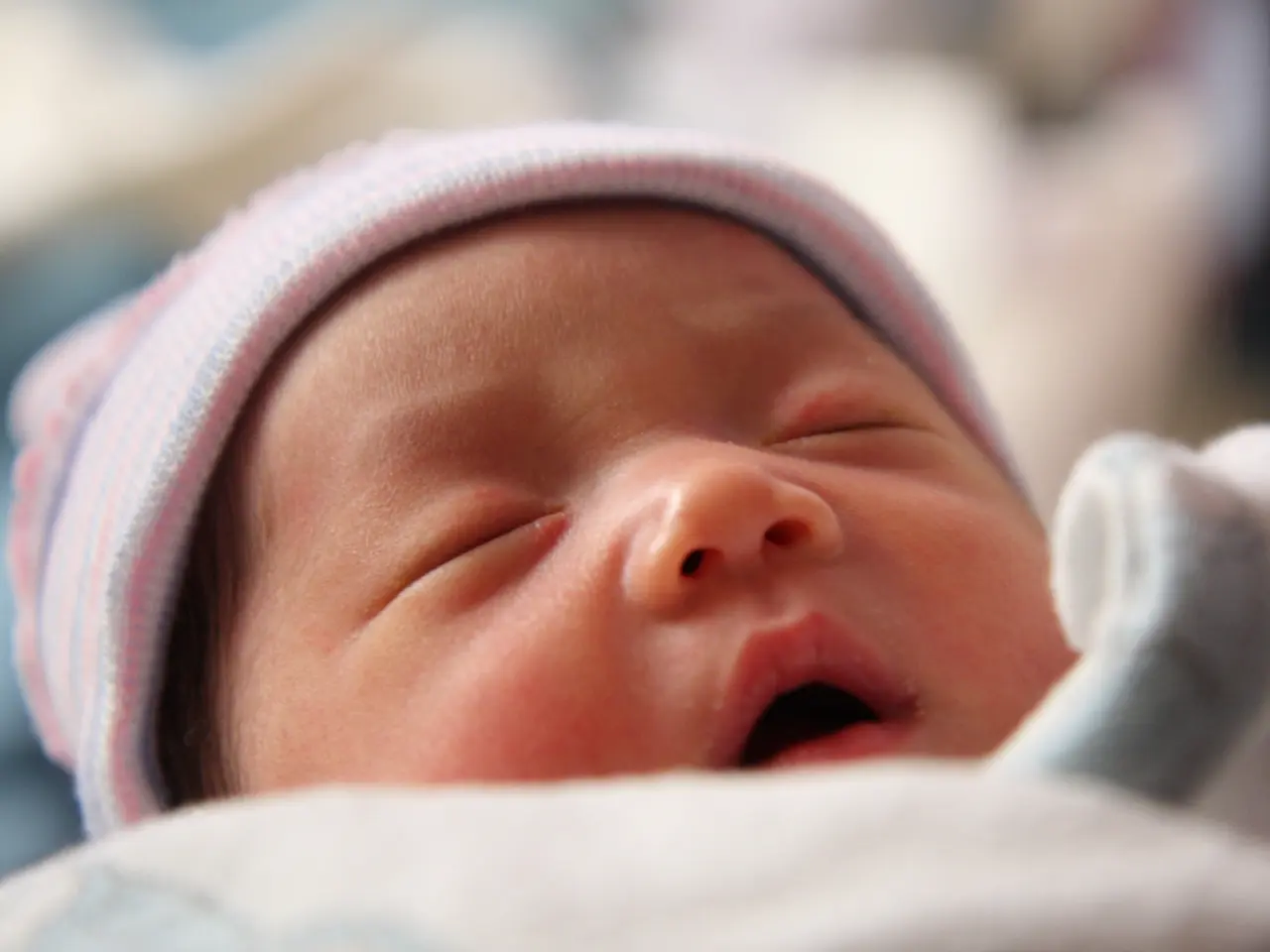Nightly vomiting in children: Reasons, remedies, and safeguards
Child Health: Understanding Common Illnesses and Their Treatments
When it comes to child health, knowing the signs and treatments of common illnesses can be crucial. Here, we'll explore some common conditions that may affect children, their symptoms, and the typical treatment methods.
Appendicitis
Appendicitis, an inflammation of the appendix, requires immediate medical attention. Symptoms include severe abdominal pain that worsens over time, abdominal swelling, and fever. Treatment involves a doctor removing the child's appendix as soon as possible.
Childhood Asthma
Asthma in children is often managed with medication in inhaler or tablet form. Symptoms may include coughing, wheezing, and shortness of breath. Treating the condition can help prevent nighttime vomiting.
Gastroenteritis
Gastroenteritis, commonly known as the stomach flu, is an infection that causes inflammation in the digestive tract. Symptoms include vomiting, diarrhea, lethargy, fever, and abdominal pain. Treatment focuses on hydration, as sipping water or a rehydration solution can help prevent dehydration. The condition usually resolves on its own within a few days.
Nighttime Vomiting
Common causes of a child vomiting at night include short-term viral infections like gastroenteritis. However, other underlying conditions such as Gastroesophageal Reflux Disease (GERD), milk protein allergy, pyloric stenosis, and infections like throat infections or tonsillitis can also lead to nighttime vomiting.
GERD
GERD occurs when stomach acid or contents flow back into the esophagus, causing discomfort and vomiting, often after feeding. Symptoms can include frequent vomiting, crying due to pain, and hiccups. Treatment may involve feeding adjustments and antacids prescribed by a doctor if severe.
Milk Protein Allergy
Babies with cow's milk protein allergy may vomit after feeding and can have eczema, colic, diarrhea or constipation, and difficulty gaining weight. Treatment often involves removing cow's milk from the baby's diet or using a hypoallergenic formula after consulting a healthcare provider.
Pyloric Stenosis
Pyloric stenosis is a narrowing of the pylorus (the passage from the stomach to the small intestine) leading to forceful, frequent vomiting without diarrhea. It requires medical evaluation and often surgical treatment.
Cyclic Vomiting Syndrome (CVS)
CVS is a rare disorder that causes bouts of vomiting for no apparent reason. A child with CVS may experience appetite loss, pale skin, abdominal pain, dry heaving, headaches, drowsiness, drooling or spitting, extreme thirst, fever, diarrhea, dizziness. Treatment involves prescription medications, such as antiemetics to prevent vomiting, and antidepressants.
Food Allergies
A child who has a food allergy or intolerance may also experience symptoms such as itchy, raised areas of skin called hives, dizziness, diarrhea, swelling in the face, wheezing or coughing, runny, itchy, or blocked nose, and abdominal pain. Treatment may include antihistamines for mild allergies and emergency medications such as EpiPen adrenaline injectors for severe reactions.
Meningitis
Meningitis, an inflammation of the membranes surrounding the brain and spinal cord, can cause symptoms such as stiff neck, seizures, fever, headache, a rash, sensitivity to bright light, drowsiness or unresponsiveness. Treatment can involve hospitalization, breathing oxygen through a face mask, antibiotics, and intravenous fluids.
When vomiting is accompanied by other worrying signs such as blood in vomit, severe abdominal pain, lethargy, or dehydration, urgent medical evaluation is required. Parents should consult a pediatrician for a precise diagnosis and tailored treatment plan.
- Obesity, a predictive factor for several health-and-wellness issues like diabetes and depression, is a concern for persona seeking healthier lifestyle options.
- Dehydration due to food poisoning can lead to blocked urination, a serious symptom that warrants immediate medical attention.
- Science continues to explore the link between delayed gastric emptying and conditions like diabetes, depression, and gastroenteritis.
- Switchers, individuals who frequently switch diets due to food intolerances or allergies, may experience nausea and vomiting as a common side effect.
- Type 1 diabetes, a condition where the body's immune system attacks and destroys the insulin-producing cells in the pancreas, can lead to severe complications such as dehydration and ketoacidosis.
- Aq, a hypoallergenic water brand, is a popular choice among families with children suffering from asthma or water allergies.
- Pfizer is currently developing a new treatment for childhood asthma to help improve the quality of life for affected children.
- Depression is a common consequence of diabetes, a medical-condition where the body has difficulty processing glucose in the blood, and vice versa.
- Medical-condition like appendicitis can be misdiagnosed as gastroenteritis due to similar symptoms, such as abdominal pain and vomiting.
- Seekers of health-and-wellness information should be aware of possible complications associated with obesity, such as hypertension, type 2 diabetes, and sleep apnea.
- Diabetes patients are at higher risk of developing nausea and vomiting due to medication side effects or complications like diabetic ketoacidosis.
- Preventive measures like maintaining a balanced and healthy diet, regular exercise, and adequate hydration can help reduce the risk of dehydration and gastroenteritis in children.




